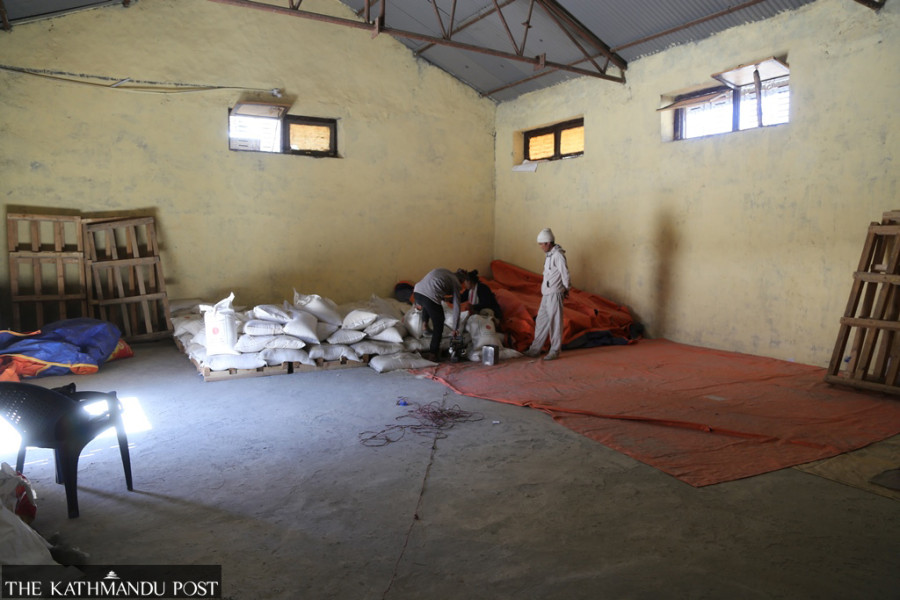Editorial
First duty of the state
The government must ensure judicious use of resources to maximise its social welfare output.
Winter is here, and it is not long before remote mountain villages and towns will be cut off from the rest of the country due to excessive snowfall. Before that happens, people from those areas will have to collect enough grain to sustain themselves during the biting cold months when they won't be able to step out of their homes. But the urgency on the part of the citizens seems to be lost on the part of the state as several depots of Food Management and Trading Company in the food deficit region of the country are reported to have been running empty for weeks.
As the Post reported on Tuesday, in Mugu district, the Gamgadhi godown of the state agency tasked with ensuring food safety for the citizens is left all but empty, with just a hundred quintals of rice for emergency use. Citizens who visit the depot to purchase rice grain are shown the door, and they are compelled to pay a higher price in the market. The contractor who was tasked with supplying 9,000 quintals of rice to the food deficient district for the fiscal year 2021-22 has failed to deliver, having supplied only 900 quintals as of now; and has stopped supplying it altogether, claiming that the fee it gets for delivering the grain is insufficient. Mugu has consistently remained a food deficit district, with the crisis hitting the roof during the cold months between November and March, and yet the state has failed to ensure a sufficient supply of food grain in time.
With lack of resources and lack of willpower, local levels often say their hands are tied when it comes to providing much-needed support to the people. Who is responsible for the crisis? Those at the helm might claim they have done their best to ensure that the people from rural areas have access to what they deserve. But in reality, the citizens of rural and downtrodden parts of the country are left with little or no grain to get through the brutal winter season when they cannot even travel outside of the home. It is not just an issue of lack of resources, as the Mugu case suggests. Instead, it is an issue of a dysfunctional distribution system. More than that, though, it is a problem deeply influenced by the hierarchical and feudalistic nature of Nepali society that fails to consider the problem of those at the periphery of the state in geographical and administrative terms.
It is also a case of the state failing to fulfil its social welfare function. But why has the state failed to find a solution to the problem that keeps repeating itself each year? Rather than leaving the people extremely dependent on rice, the state can also seek alternative coping strategies during critical months. These may include changing the way we store our food grain, introducing alternative crops in the mountainous region, and altering food consumption patterns by easing excessive dependence on rice as a primary food grain. The state can find multiple ways to solve the crisis. The question is, does it have the willpower to do so?
The answer lies in whether the state considers the everyday lives of the citizens as an essential element of a functioning democracy. The state has to look inwards to realise its function with regard to its relationship with citizens. Clearly, the relationship between the citizens and the state is fractured, as the state continues to leave the citizens to fend for themselves during times of crisis. Only when we undo the hierarchy ingrained in our minds can we find a meaningful and long-term solution to the problem.




 27.41°C Kathmandu
27.41°C Kathmandu














